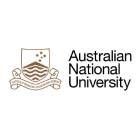Master of Regulation and Governance
Master of Regulation and Governance
The Master of Regulation and Governance (MREGG) is a unique degree that equips students and their organisations to navigate environments where complexity, catastrophic risk, and transformative technologies are reshaping the ways in which we govern and regulate. Graduates from this program will be working in – or will join -…
Categories
COURSE DESCRIPTION
The Master of Regulation and Governance (MREGG) is a unique degree that equips students and their organisations to navigate environments where complexity, catastrophic risk, and transformative technologies are reshaping the ways in which we govern and regulate. Graduates from this program will be working in – or will join – government or private sector organisations charged with designing and applying regulatory policy solutions to pressing social problems, often in partnership with diverse stakeholders. Core courses provide students with a solid foundation in the concepts, processes, institutions and practice of regulation and governance. Elective courses provide case-studies, simulations and clinics in which to examine domains such as climate, crime, environment, health, Indigenous Australia, justice, safety, technology and urban design. All the courses are interactive and ask how regulation and governance is created and by whom – and for what purpose, with an emphasis on how to better anticipate catastrophe, manage risk and provide equitable social outcomes. It draws on the evidence-based research and the ‘big ideas’ in regulation and governance for which the ANU’s RegNet academics are world famous. MREGG students join an education program at the School of Regulation and Global Governance (RegNet) that emphasizes interdisciplinary skills-building, our place in Asia and the Pacific, a stimulating curriculum, master classes with distinguished practitioners, global networks and multiple career pathways.
Career Options
ANU ranks among the world’s very finest universities. Our nearly 100,000 alumni include political, business, government, and academic leaders around the world.
We have graduated remarkable people from every part of our continent, our region and all walks of life.
REQUIREMENTS
Applicants must present one of the following:
- a Bachelor or international equivalent with GPA 5/7
- a Bachelor or international equivalent with GPA 4/7 and a minimum of 3 years full-time equivalent work experience at ANZSCO Skill Level 1 in a field related to the program
- a Bachelor or international equivalent with GPA 4/7 and a Graduate Certificate or international equivalent with a GPA of 4/7
- a Graduate Diploma or international equivalent with a GPA 4/7
- a 48 units of courses in a postgraduate program with a GPA of 4/7
- a Graduate Certificate or international equivalent with a GPA of 4/7 and a minimum of 3 years full-time equivalent work experience at ANZSCO Skill Level 1 in a field related to the program
- a Graduate Records Examination (GRE) General test, completed no more than 5 years before the time of application, with a minimum score of 155 for Verbal Reasoning, 155 or Quantitative Reasoning and 4.0 in Analytical Writing and a minimum of 3 years full-time equivalent work experience at ANZSCO Skill Level 1 in a field related to the program
- a minimum of 10 years full-time equivalent work experience at ANZSCO Skill Level 1 in a field related to the program
English Language Requirements
IELTS Academic and IELTS UKVI Academic [excluding One Skill Retake and IELTS Online] – Overall score of 6.5 overall with minimum 6.0 in each band.
TOEFL iBT Paper Edition and TOEFL iBT [excluding Paper Edition and Home Edition] – Overall score of 80 (Reading – 20; Writing – 20; Listening – 18; Speaking – 18).
Cambridge C1 Advanced – Overall score of 176 minimum 169 in each band.
PTE Academic and PTE Academic UKVI [excluding PTE Academic Online] – Overall score of 64 minimum 55 in each band.
EDUCATIONAL INSTITUTION
The Australian National University (ANU) is a public research university and member of the Group of Eight, located in Canberra, the capital of Australia. Its main campus in Acton encompasses seven teaching and research colleges, in addition to several national academies and institutes.




